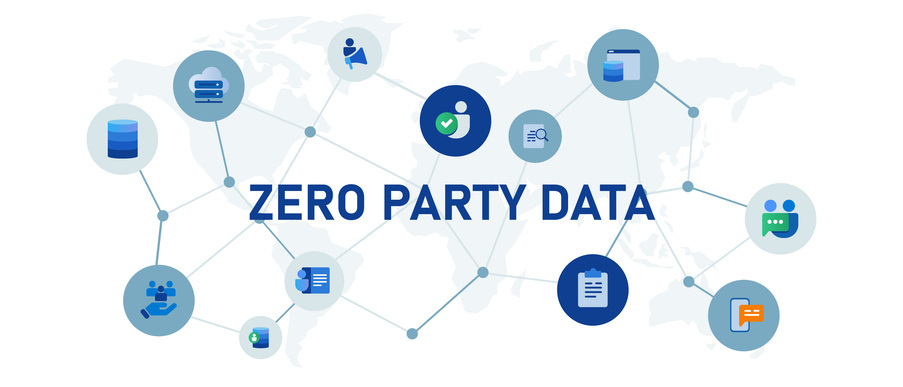The SaaS world is an extremely competitive place, with focus placed on ‘land grabbing at all costs’ and the importance of ‘exponential client scaling’. Profit is seen as a secondary consideration as client wins and the pressure to achieve monthly targets supersede ‘traditional’ business logic. The problem is many organisations never reach that point of delivering healthy yields, as complex SaaS metrics are often used as a shield to the reality. What this has encouraged is more complex or short-term sales tactics, so what does this mean for businesses and clients?
Last ditch tactics
Inevitably, when ‘land grabbing’ becomes the primary business aim, a tendency to resort to ‘last ditch tactics’ creeps in. In other words, at the point a prospect chooses your competitor, the sale suddenly becomes a ‘must-win’, and suddenly a considered approach flies out the window. I am staggered by this response and, while noone in business ever wants to lose a deal I’m often shocked by how frequently and the extent to which it plays out.
The most common of these tactics is the last-ditch price drop. Your business hasn’t been chosen so suddenly you feel compelled to do whatever it takes to win the business – the price book goes out the window. Now, whether you win or the prospect remains with their preferred supplier, both sides will receive a severe erosion in margin. There is little logic behind this move, indeed, it may have even been a deliberate ‘if we can’t win let’s make sure they lose’ approach.
Either way, there are numerous examples of a ‘win at all costs’ approach actually costing businesses money, rather than providing a return. In these situations, every time a transaction is completed the business is losing money – you may have won the client but is it financially worth it? It also raises questions around your business’ credibility, as this approach hints at desperation.
Purchase decisions are made based on numerous factors. If price is the most important factor and no other differentiators can be seen, then you’ve not looked at your potential suppliers closely enough. A price drop should not be the deciding factor.
This tactic also invariably leads to an overall market price drop. Prices are expected to be low from the start – businesses believe they need to be the most competitive option, right from the off. However this becomes cyclical with many clients still expecting to negotiate. If this tactic is employed, then prices are lowered even further but the service still has to be delivered to the same level and extent. This behaviour has become entrenched particularly in SaaS businesses – it’s not something that is commonly seen in organisations using the traditional GaaP accounting model as margins are more readily measured. There are also fewer variables. The challenge with SaaS is that you don’t know how profitable your client will be as this depends on how long they stay with the business. It’s much easier to apply a business assumption and make it look like eventually it will be profitable.
The implications for businesses and customers
So who suffers? My belief is everyone. The credibility of the supplier is severely depleted, the margins are eroded and the overall perceived market value can be pushed down. This impact reaches wider still, as customers are also affected.
The first thing to consider is the actual cost. Although the supplier’s first year offer might look attractive, what does the contract look like in years two, three and beyond.
I recently spoke with a prospect who had been caught by the headline figures and by year two had been hit by a 100 per cent increase which was nicely tucked away in the small print. Often the ‘deal’ will also have certain usage parameters – ie the price is lower but you are restricted to set boundaries. Once exceeded, the price accelerators or plan changes will kick in – often unexpectedly as it can be hard to predict usage especially when complex measures are involved. My experience is that if these parameters are included, expect to exceed them.
The other element that can be misunderstood is customer care. If you pay a bargain price, expect a bargain service. The service level agreement is often appended separately to the contract but this should be regarded as a critical factor. If the price is reduced then something will need to be sacrificed and this will almost certainly be the customer care element. It may look like a great discount but in the long-term it could create much more work for your team. For example, you may need to field first-line support calls that can’t be supported by the supplier.
What next?
As humans our psychology has been wired towards getting a good deal. I would always advocate finding the right price for your business needs, but there are certain considerations that are equally important to bear in mind:
For suppliers:
- Stand out from your competitors in different ways such as excellent customer service – don’t let price be the differentiator
- Create a simple and easy to understand price model so the customer can see exactly what they’ll be receiving
- If a lower price needs to be negotiated, suppliers should look at the overall package on offer and work out whether it’s the most cost effective option for the customer. Strip out any features that aren’t completely necessary for that customer’s needs to ensure the basic essentials are included, but for the most competitive price. In fact, customers should also take the time to consider this too, before a decision is made.
For customers:
- If you have a preferred supplier initially, consider why and which parts of the offer appeal to you
- Always read the small print – especially where price is involved.
Will this behaviour continue? In the short-term I believe so, is it sustainable? I’m not nearly as convinced.
Adam Reynolds is CEO of webexpenses.





